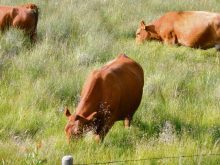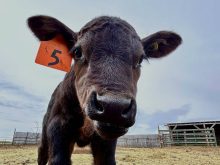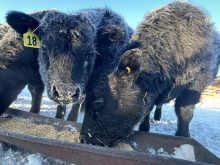With Alberta’s big two beef packers reducing production, there’s an urgent need for government support for cattle feeders, say industry officials.
Both Cargill and JBS Canada have cancelled second shifts at their Alberta locations after some workers tested positive for COVID-19.
And that means a big drop in the number of cattle being processed, said Rich Smith, executive director of Alberta Beef Producers.
Read Also

Clock ticking on Alberta grazing lease controversy
The MD of Taber faces a Feb. 24 deadline on a contentious grazing lease policy, as residents debate the future of 81,355 acres of native grassland.
“Cargill is probably 35 per cent of the beef production in Canada — 50 per cent of 35, that’s a significant reduction,” Smith said April 16.
Those sorts of production cutbacks quickly affect producers and they will need federal assistance for a set-aside program, said Janice Tranberg, president and CEO of the National Cattle Feeders’ Association.
“Producers are already being impacted,” she said. “Without a set aside program, there is going to be some difficulties.
“The fed cattle sector can manage for the next couple weeks, but much past that it’s going to be quite a bit of crisis.”
The set aside program would help cover the costs of feeding cattle that would normally have gone to slaughter. The program, developed during the BSE crisis, sees cattle put on a maintenance diet (one higher in forage) with a committee of industry and government officials determining how many cattle are placed in the program.
“Farmers and ranchers in the supply chain would be able to identify if they had a group of cattle that they would feed this maintenance diet to,” said Canadian Cattlemen’s Association official Fawn Jackson. “We would be able to slow down the supply chain.”
The program would apply to fed and feeder cows and culled calves.
“This is a fluid situation,” said Jackson. “It does cost money to extend the feeding period of the animal. We need government assistance at this time. We are requesting urgent action on this.”
The cattle sector is also asking provincial governments if they could be able to provide matching funding, said Tranberg.
International demand for beef is still strong, and so is national demand for ground beef, said the executive vice-president of the Canadian Cattlemen’s Association.
“It’s more about managing inventories now so we can match it and get price stability back to the industry,” said Dennis Laycraft.
“There’s not even an offer on cattle right now. Once they (the beef packers) get through the inventory that they have in the plant currently, then they’ll start to work into the market.”
Overall, processing plants in Canada and the U.S. have reduced production by five to seven per cent, said Brian Perillat, manager and senior analyst at CANFAX.
















